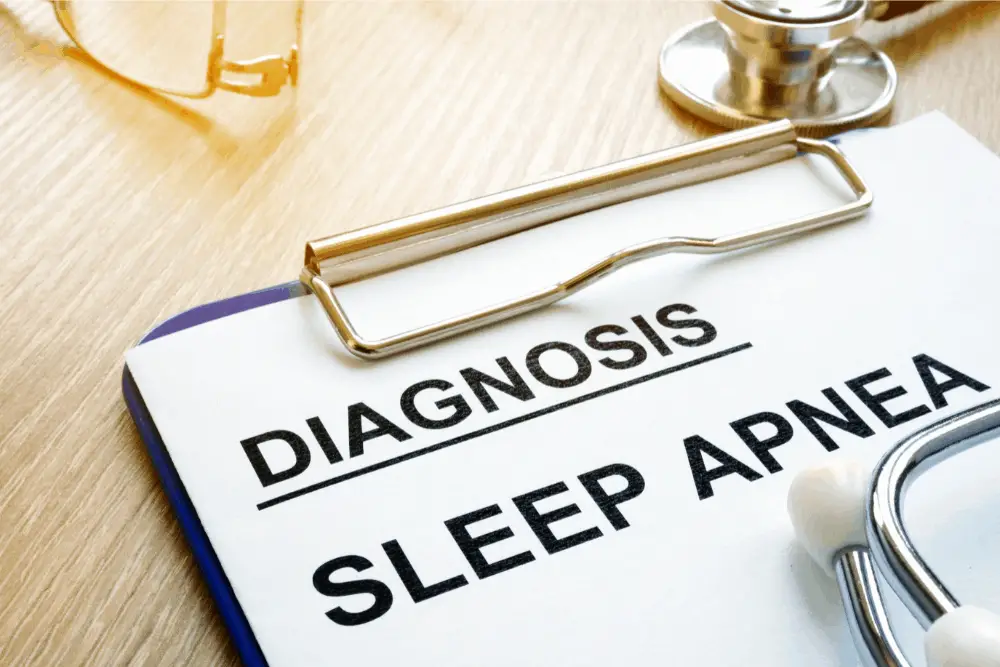Sleep apnea is a common condition that is thought to affect an estimated 18 million Americans alone. Therefore, if you’ve just been diagnosed with it, you’re not alone.
You’re also likely to have a lot of questions regarding the wider impact sleep apnea may have on your health.
Obstructive Sleep Apnea (OSA) is one of two forms of sleep apnea, and this is the most common condition of the two.
It results in the physical blocking or collapsing of the airway while you sleep, which often leads to snoring. However, many people ignore the common symptom of snoring, which means sleep apnea often goes undiagnosed.
Undiagnosed sleep apnea is dangerous, as it can have an impact on your overall life expectancy and health, so if you’re displaying symptoms of it, it’s essential to seek advice from your healthcare professional.
How does OSA affect your health?
OSA blocks your airway, meaning the amount of oxygen taken in by your lungs while you sleep is dramatically restricted.
Decreased oxygen intake can have an impact on many aspects of your health. For example, it can drastically affect your cognitive ability, which puts you at greater risk of suffering an accident, either at work or while driving. Many people with sleep apnea find that they struggle to concentrate and notice a reduction in their organizational skills and ability to focus.
Untreated sleep apnea can lead to high blood pressure. A reduced supply of oxygen can also increase your chances of suffering a heart attack, while 80% of all nocturnal strokes can be directly attributed to OSA.
In terms of day-to-day side effects, many sleep apnea sufferers experience morning headaches, dry mouth, and fatigue or a feeling of sleepiness even if they’ve slept for a long time.
Does sleep apnea reduce life expectancy?
Studies have shown that sleep apnea can potentially decrease life expectancy by several years, with others estimating that obstructive sleep apnea can shorten your life by up to 12-15 years.
The main reason for this isn’t the sleep apnea itself, but the wider health implications it can have - for example, increasing your risk of a heart attack or stroke, or of being involved in an accident due to poor concentration.
The good news however is that sleep apnea is manageable and treatable, which is why it’s important for it to be diagnosed. It’s undiagnosed sleep apnea that can impact your life expectancy.

Does CPAP increase life expectancy?
As we said, sleep apnea is easily treatable, and the main course of treatment used is usually a CPAP device. A continuous positive airway pressure (CPAP) device consists of a mask, connected to a pump, which provides a positive flow of air into the nasal passages to keep the airway open.
Researchers have found that the use of CPAP can significantly increase life expectancy for those suffering from sleep apnea. The use of a CPAP mask is linked to a 62% decline in the odds for death over 11 years of follow-up for those treating sleep apnea with CPAP.
In the study, eighty-one participants used CPAP over the 11 years of follow-up, while the other 311 did not, and results suggested that CPAP users cut their odds of dying from any cause over those 11 years by almost two-thirds compared with nonusers.
These results were also echoed by findings identified previously by researchers in a decade-long study of 1,651 patients. That study also suggested that the use of a CPAP mask can reduce the chance of cardiovascular events 'significantly.’
Why use CPAP?
CPAP is thought to significantly increase the life expectancy of sleep apnea sufferers, and sleep specialists encourage the use of CPAP treatment for this reason.
Left undiagnosed and untreated, sleep apnea can dramatically impact your life expectancy, especially seen as it is linked to cardiovascular issues, high blood pressure, and strokes, as well as a decrease in cognitive function.
Other Treatment
Sleep apnea can be strongly linked to obesity, so if you're overweight, it might be a good idea to try to address this, as weight loss can significantly improve sleep apnea.
That said, you should speak to your doctor about this, as only they can give you an appropriate figure of how much weight you’d need to lose to see improvements to your condition.
Final Verdict
Sleep apnea is an extremely common condition, however, if left untreated it can be serious, and you shouldn’t underestimate the impact that the condition can have on your overall health and even your life expectancy.
Sleep apnea restricts your oxygen supply which can lead to cardiovascular events like heart attacks, and these can lead to premature death.
That said, the use of CPAP is highly effective as a form of treatment for sleep apnea, and its use can actually improve your life expectancy, which is why it’s really important that you use your CPAP if you’ve been diagnosed with sleep apnea, or that you see a doctor if you suspect you have the condition.

Damon Wiseley is a Registered Respiratory Therapist and Certified Pulmonary Function Technologist.
